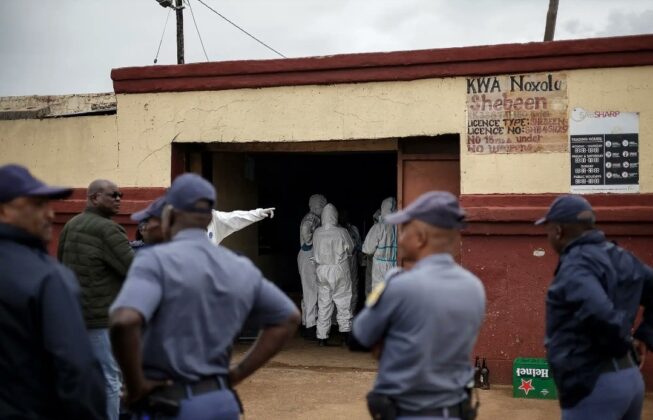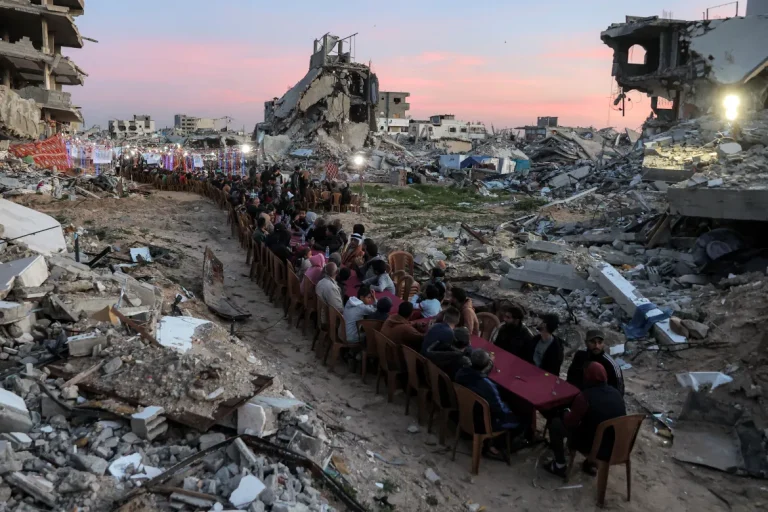
Burkina Faso Introduces Harsh Anti-LGBTQI Law Image Courtesy: News Central TV)
(The Post News) – Burkina Faso Enforces Drastic Anti-LGBTQ Law, criminalizing same-sex relations and threatening prison and expulsion. The military regime has imposed prison sentences of up to five years for same-sex activity. Foreign nationals convicted under the law will face immediate expulsion.
The legislation marks a sharp escalation in legal restrictions on LGBTQ+ rights and reflects a growing trend of anti-LGBTQ laws across Africa.
Unanimous Approval by Transitional Assembly
The transitional assembly, consisting of 71 non-elected representatives, approved the anti-LGBTQ law unanimously. The legislation explicitly targets what the authorities describe as “offenders of homosexual acts” and forms part of a wider set of reforms affecting domestic and nationality laws.
These changes demonstrate the regime’s determination to reshape legal and social frameworks while consolidating its authority during the transitional period.
Nearly 30 African countries currently criminalize same-sex relations, reflecting widespread resistance to LGBTQ+ rights across the continent. Burkina Faso’s neighboring and allied nation Mali, also under military rule, passed similar laws in November.
Observers note that the two countries’ governments have increasingly aligned their policies on social and moral issues, suggesting regional coordination among military-led states enforcing conservative legal standards.
Regional Context and Rising Restrictions
The political environment in Burkina Faso has shifted dramatically since the military seized power in a 2022 coup that overthrew the civilian government. Since taking control, military authorities have introduced extensive reforms across multiple sectors, including security, governance, and civil liberties.
They have also postponed elections expected to return the country to civilian rule, citing concerns over national stability and ongoing threats from extremist groups in the Sahel region. The introduction of anti-LGBTQ laws fits into a broader pattern of centralizing power and controlling social policies.
The crackdown on same-sex relations is part of a wider trend in Africa, where several governments have moved to tighten restrictions on LGBTQ+ communities. In Uganda, authorities punish so-called “aggravated homosexuality” with the death penalty, while basic same-sex activity carries a possible life sentence.
Ghana has also strengthened anti-homosexuality laws in recent years, reflecting growing political and social resistance to LGBTQ+ rights. Human rights groups warn that these measures foster discrimination, social stigma, and increased vulnerability for LGBTQ+ individuals, who often face harassment, violence, and limited access to essential services.
Burkina Faso’s anti-LGBTQ law now adds to this pattern of regional restrictions. By targeting both citizens and foreign nationals, the regime signals its intention to assert moral and legal authority over all residents within its borders.
Expulsion clauses for foreigners reflect a growing trend among some governments to treat LGBTQ+ rights as not only a domestic issue but also an aspect of national identity and cultural conformity.
International observers have criticized similar measures in other countries, noting that criminalization undermines human rights commitments and can isolate nations diplomatically and economically.
The timing of the legislation also reflects the transitional government’s broader strategy. Military authorities face pressure to maintain control over a fragile political landscape marked by ongoing security challenges, economic instability, and civil unrest.
By passing anti-LGBTQ laws in Burkina Faso, the regime may aim to rally conservative support while demonstrating decisiveness in reshaping social norms.
Critics argue that this approach diverts attention from pressing governance and security issues, while human rights advocates warn of the law’s potential for abuse and persecution.
As Burkina Faso joins a growing list of African nations criminalizing same-sex relations, regional and international attention is likely to increase.
Anti-LGBTQ laws in Burkina Faso illustrate how military-led governments are influencing social policies, often using legislation as a tool to consolidate power and assert control over populations.
For LGBTQ+ individuals within the country, the legislation heightens legal and social risks, signaling that the transitional authorities prioritize restrictive moral codes over inclusive governance.



